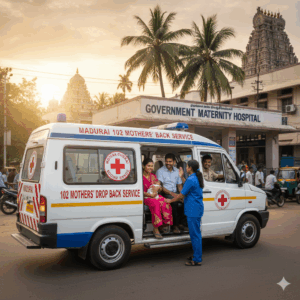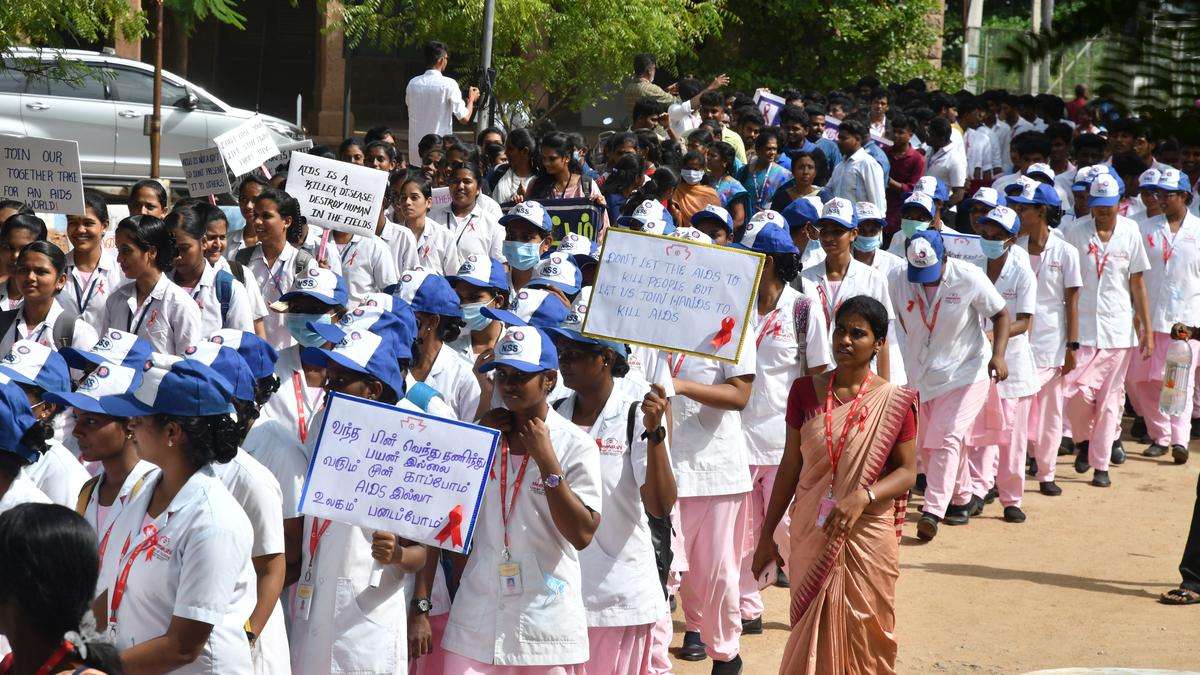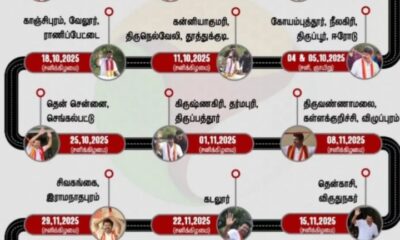Local News
A Lifeline on Wheels: Madurai’s 102 Drop Back Service for Mothers
For a new mother, leaving the hospital after childbirth is supposed to be a moment of relief. Yet, in reality, the journey home is often filled with exhaustion, anxiety, and uncertainty about safe travel.

In Madurai and nearby districts, a government initiative called the 102 Drop Back service has begun to bridge this crucial gap—offering not just a ride, but comfort and dignity to women stepping into motherhood.
Since January this year, more than 52,000 mothers have used this facility to return home from government hospitals. With just two to four vehicles per district, these vans have managed to cover anywhere between 400 to 900 trips a month, navigating city streets, winding rural lanes, and even remote hamlets to ensure that women and their newborns are not left stranded after discharge.
R. Prasad, the Regional Manager of 108 GVK-EMRI Ambulance Services in Madurai, described the service as more than just transport. “Our drivers don’t just drop mothers home,” he explained. “They help them in and out of the vehicle, handle the baby with care, and make sure families feel supported in one of the most delicate moments of their lives.” For many households, this also means saving the heavy costs of hiring private vehicles.
The impact of this initiative is becoming increasingly visible. In Madurai alone, the number of beneficiaries rose from 4,375 last year (January to August) to 6,383 during the same period this year. The surge shows how awareness is spreading and trust is deepening. Yet, with the rise in demand, challenges have surfaced too.
For families, the biggest frustration is the waiting time. After discharge, mothers sometimes wait hours for their turn, unsure when their ride will arrive. “If there was an option to book the vehicle in advance, it would reduce so much stress,” said J. Manimegalai, an attendant from Melur who had to wait outside a hospital with her daughter-in-law and newborn.
Currently, major hospitals like the Government Rajaji Hospital share daily discharge lists with the 102 control team, which then arranges vehicles based on the patient’s address. While this system ensures coverage, it also stretches the limited fleet thin. Healthcare activists say that unless the model is expanded, the very success of the scheme could slow it down.
C. Anand Raj, a public health advocate, suggested several improvements. He believes hospitals should install display boards showing waiting times and introduce a formal grievance system for complaints. Vulnerable groups—such as mothers with health conditions, disabilities, or financial difficulties—should be given priority. Most importantly, he argued, the scope of the program should be widened to include transport for expectant mothers before delivery and follow-up visits for infant vaccinations up to one year of age.
Interestingly, while the 108 ambulance fleet is officially reserved for emergencies, in practice, the teams have occasionally used them for late-pregnancy cases needing urgent help. The 102 vehicles, however, remain focused on non-emergency situations like post-delivery drop-offs. Together, these services create a delicate balance in maternal healthcare transport, though more vehicles and coordination are desperately needed.
Behind the statistics are countless personal stories. For some women, especially those from rural areas, the service has been a blessing, sparing them from long and costly auto rides or overcrowded buses. For others, it has meant reaching home safely with a newborn in their arms, without the fear of being jostled or rushed.
Madurai’s Drop Back service is still young, but its role is growing quickly. What began as a simple idea—to provide a safe ride home for mothers—has become a symbol of how thoughtful policies can touch lives in intimate, meaningful ways.
As the city prepares for the future, the message from families and health workers is clear: this is a service worth investing in. With better planning, more vehicles, and smarter systems, the 102 Drop Back could move from being just a helpful option to becoming a pillar of maternal care in Tamil Nadu.
Because sometimes, the journey home is just as important as the destination—and for a mother carrying her newborn, that journey must always be safe, dignified, and filled with care.




